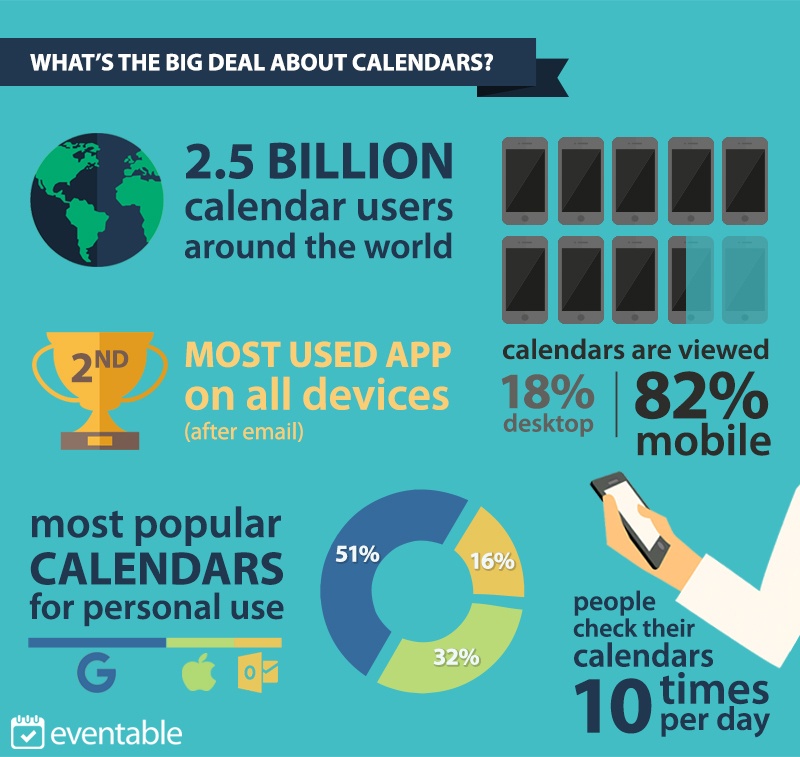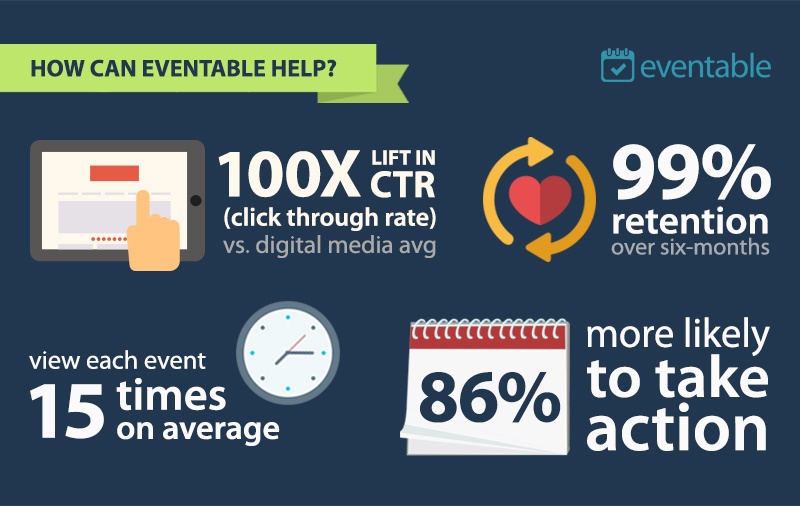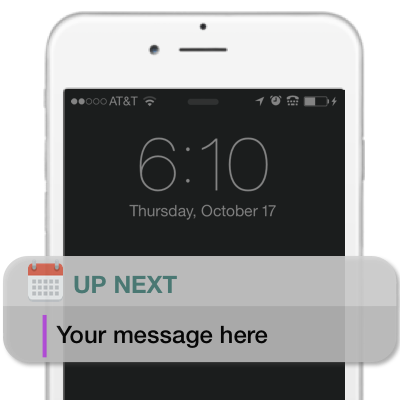Calendar marketing enables businesses to communicate with consumers through digital calendars (Google Calendar, Outlook, iOS, etc). Businesses use calendar marketing to ensure consumers act on important promotions.
The “Last Mile” that Drives Action
Let’s say Michael wants to purchase concert tickets from one of his favorite venues. Consider two scenarios:
Scenario A: Michael sees an ad on Wednesday for a ticket sale on Saturday. But between Wednesday and Saturday, he forgets about the sale due to his busy schedule and tons of other marketing messages in his inbox. Michael never buys the tickets.
Scenario B: Michael sees an ad on Wednesday for a ticket sale on Saturday. On the ad, there’s a button prompting him to add the sale (and future sales, if he chooses) to his calendar. Michael opts in. On Saturday, he receives a personalized calendar reminder to purchase the tickets and he acts on it.
You can probably guess which scenario is a better experience for both Michael and the concert venue.
Digital Calendars: New Findings, New Tricks
Recent findings have led several companies to innovate on the calendar and help brands leverage them as a marketing channel. Calendars are installed on every mobile device, over 2.6 billion worldwide, and their reach rivals that of email — coming in at a close second. As the channel most closely tied to the physical world, telling us where we need to be and when, calendars drive meaningful engagement at specific times. Studies have shown that consumers are 86% more likely to take action on something if a related event is in their calendar.

Today, smart “add to calendar” buttons can be embedded on websites, emails, social media posts, or even display ads. These buttons allow consumers to easily add dynamic events (i.e., promotions) to their own calendar. Other calendar innovations include the ability to send personalized calendar notifications (beyond the default 15-minute reminder), capture emails when consumers add to calendar, and access analytics on in-calendar engagement.
Frequently Asked Questions
Here at Eventable, we often get questions from businesses about calendar marketing. We thought it would be helpful to answer the most common ones on our blog. So without further ado, here are the top calendar marketing questions we receive, answered for you.
1. This approach seems intrusive. Why would consumers want marketing messages pushed on their calendar?
With calendar marketing, consumers self-select promotions for their calendar. Consumers must explicitly opt-in by clicking an “Add to Calendar” button. It’s an approach built for mutually beneficial relationships, instead of mass one-way communication.
This aligns well with a modern marketing mix. Traditional advertising worked when marketers controlled the narrative, but today, consumers (not brands) are in the driver’s seat. In fact, the world's largest boycott is currently in effect, with over 600 million consumers using ad-blocking technology.
Consumers are now demanding contextual, personal and purposeful experiences. Calendar marketing is the cherry on top of these experiences — it makes it easy for consumers to act on promotions or campaigns they already care about.
2. How do consumers opt in?
With Eventable, brands share “Add to Calendar” buttons on websites, emails, social media posts, mobile apps, display ads, or SMS. Consumers who view a button can click it to add the brand’s event to calendar. Eventable integrates with all major calendars on every device, making opting in a seamless, two-click process!
Note: This process creates a dynamic feed inside someone’s calendar. This means that brands can send ongoing updates, new events, or personalized content directly to any consumer. They can even target content based on a person’s location, behavior, or interests.
3. What types of companies are using this?
With over 10,000 customers across 170 countries, Eventable has been used by a wide range of companies in almost every industry.
Here are some of the most popular uses we see:
- Retailers use calendar marketing to drive purchases at specific times.
- Media and entertainment companies use calendar marketing to boost audience attendance and tune-in.
- Services, from from ride-hailing apps to international hotels, use it to address customer needs in particular moments.
- Schools and universities use it to ensure that students and alumni get useful events on their calendars.
Ultimately, any organization looking to drive timely action can benefit from calendar marketing. If it has a time, it can be on the calendar.
4. How can I track who adds to calendar?
Eventable integrates with 50+ CRM and email providers so you can easily track exactly who is adding and engaging with your events. Once you enable the integration, you will be able to sync lists and contact information to your CRM. You can also view all your subscribers directly inside the Eventable Dashboard.
Together with Eventable’s patented SmartEventsTM Analytics, you get robust reporting on not only who is adding your events, but also how each individual engages with your events inside the calendar. Track in-calendar impressions, link clicks, social shares, location, and much more.
5. What kind of results can I expect?
While we’re just scratching the surface of how powerful calendar marketing can be, Eventable has helped many brands improve their campaign effectiveness. We’ve seen brands reach 100X increases in customer engagement and 99% retention rates on calendar marketing campaigns.

To learn more about how calendar marketing has worked for leading brands, feel free to check out case studies from our customers.
We’re always happy to discuss how calendar marketing can help your organization specifically. Request a demo to chat with us!



